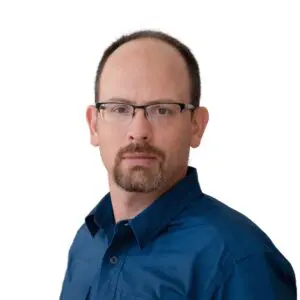This is part three of a series liveblogging Tim Suttle’s book, Public Jesus. You can read the introduction to the series here, my post on the first chapter here, and a discussion on Suttle’s Introduction here. Each chapter will be liveblogged.
Do you have a soul-crushing or a soul-sustaining job? In Chapter 2 of Public Jesus, Tim Suttle believes that if we are counting the right things in life, our work will be worship, not toil. Many of us view what we do as career, but few of us view what we do as a vocation. The difference is that a vocation is a calling in life, how we image God to the culture, while a career (apart from vocation) is “just work.”
Suttle connects work to our relationship with God. Vocation infuses labor with meaning. It is a spiritual thing, even holy. Nothing irks me more than considering work “secular” and ministry “sacred.” Such a dichotomy is toxic to our lives and to our culture. Those who view “ministry” as more important than what is usually considered “secular work” are missing the full impact of the concept of work.
Suttle is encouraging to those looking for a soul-sustaining vocation (not a soul-crushing job). To a degree, just changing our perspectives can change how we experience our work. Suttle writes, “Christians are supposed to be living into the reality that Jesus is Lord. We are meant to live each day as though eternity has broken into time. We have been created to organize our lives so that we image God, so that we become salt and light.” He contrasts two men who work the exact same job. One viewed it as miserable, the other thought it was the best job ever. The difference? To one it was toil. He was a slave, miserable. To the other it was holy. He was free, joyful. Suttle concludes, “If Jesus is making all things new, then Jesus is making our vocational life new.”
This chapter excited me for many reasons. It was highly reflective, asking as many questions as offering propositions. The majority of our days and the majority of our lives are comprised of labor, so it stands to reason that the concept of transforming how we view our labor is critically important. In fact, it can make or break a person. If you’ve ever been part of a soul-crushing job, you know what Suttle is talking about. Likewise, if your job brings you joy and fulfillment, you know what fulfilling your vocation feels like. This chapter offers relevant questions that point us in the right direction.
Our work is part of the mission of God to redeem the world. We find meaning in our work when we understand how it connects to the web of life. Suttle rightly understands that when we understand the big picture of what God is doing in Jesus, we will embrace our work as worship, not as toil.
As a Christian who has spent four years endeavoring to understand economics, Suttle’s work could go further if there were more room. At the end of the chapter, one question is, “How does what you do serve society?” For me, it’s impossible to answer that question without having the semblance of an economic way of thinking. If our vocation is to take care of the earth, knowing this isn’t enough to successfully do it. What kind of cooperation is necessary? How do we decide where scarce resources ought to go? What role does profit and loss play in resource allocation? What are the critical components of a stable economy? What happens when those stable factors become manipulated by the powerful? On a personal level, how does our role in the economy play a factor in social and productive progress? How would we view our jobs if we knew it was an unsustainable line of work that is contributing to economic collapse?
While some of these questions border on philosophical, it would be very difficult to answer these questions accurately without an economic way of thinking. Economics provides useful tools by which we can understand social cooperation and human action. I can think of nobody better than F.A. Hayek in describing the role of economics:
The curious task of economics is to demonstrate to men how little they know about what they imagine they can design.
Making work meaningful is a task for the long haul. It doesn’t happen overnight. Part of that task ought to be understanding how we fit into the bigger puzzle. Doing so requires that we embrace God’s vision for work, which means we take seriously what we do as serving God and our neighbor. It also means taking seriously the limitations of our human desires, and work within the constraints we have as humans and with a planet of scarce resources.



), //libertarianchristians.com/wp-content/plugins/smartquizbuilder/includes/images/template6-latest.jpeg))

), https://libertarianchristians.com/wp-content/plugins/smartquizbuilder/includes/images/template6-latest.jpeg))


;?>/smartquizbuilder/includes/images/sqb-registration-img.jpg)

